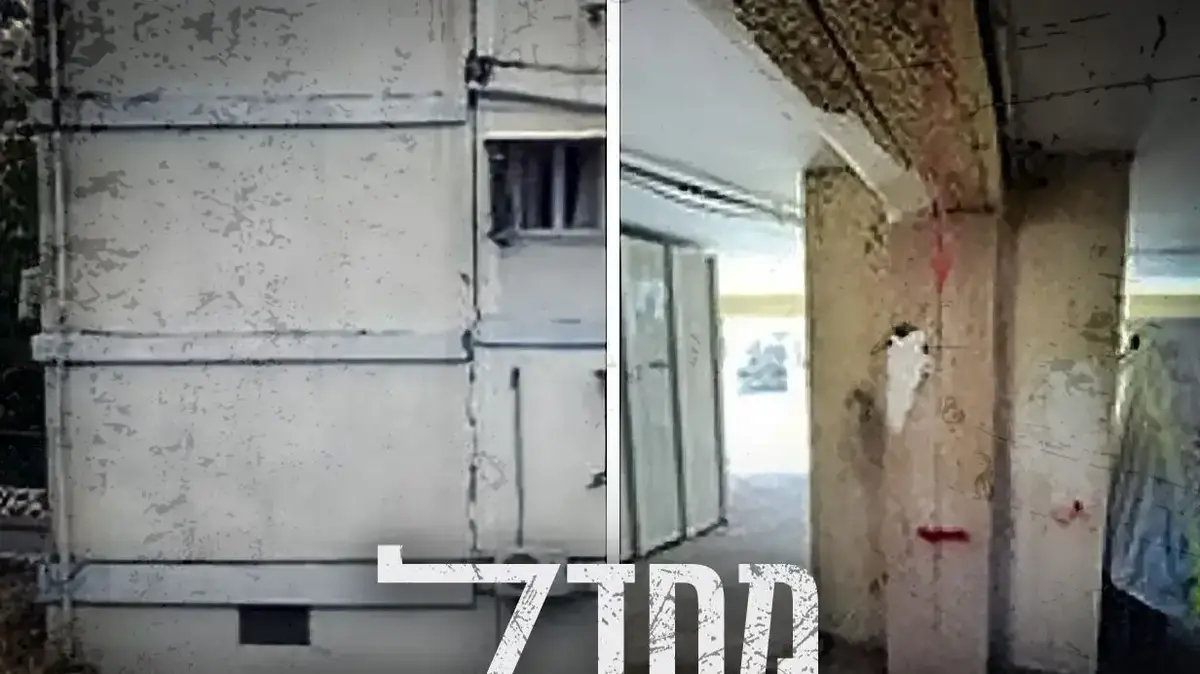In the video: the State Comptroller's report on the preparedness of the authorities for an earthquake (the State Comptroller)
The earthquake disaster in Turkey claimed the lives of tens of thousands of people and left hundreds of thousands homeless.
Immediately after the disaster, the question arose as to whether Israel was prepared for an earthquake disaster.
A special report by State Comptroller Matanyahu Engelman that examined the local authorities' preparedness for earthquakes in recent months reveals that the situation is dire.
According to the report published this afternoon (Tuesday), the Ministry of Construction and Housing has not completed the strengthening of 93 percent of all buildings that require immediate strengthening in five municipalities that were inspected as part of the report. This means that 93 percent of the buildings are in immediate danger of collapse. In addition, 70 percent of the schools designated for strengthening in those municipalities that were inspected were not reinforced. The State Comptroller's team inspected
the condition of the buildings in Beit Shan, Tiberias, Safed, Kiryat Shmona and Hazor HaGalilit. The report shows that the cost of strengthening plus protection of the buildings in the same authorities that were inspected is NIS 2.34 billion.
The auditor explained that the report was written due to the fact that Israel lies close to the Syrian-African fault, and hence the level of risk that a high-intensity earthquake will occur in the country. The prevailing assumption, the report states, is that there is a high probability that within 50 years a strong earthquake will occur in the area between South Lebanon to the south of the Dead Sea.
Analgman stressed that the Prime Minister, the Minister of Defense, the Minister of Construction and Housing, the Minister of the Interior, the Minister of Finance, as well as the Interministerial Steering Committee for Earthquake Preparedness must act to promote the preparedness of the State of Israel and the local government to deal with earthquakes in particular, regarding the local authorities located along the Syrian fault line -African.
The audit revealed that at the time of the audit, 1,124 buildings that were determined to be strengthened in the five authorities that were audited had not been reinforced.
As mentioned, this is 93 percent of the buildings.
In addition, regarding the implementation of the TMA 38 program in local authorities in the periphery, it emerged that TMA 38 was not implemented at all in Beit Shean, Tiberias, Safed, Kiryat Shmona and Hazor HaGalilit, even though they are all located in areas prone to being severely damaged by an earthquake.
The auditor's report also revealed that about 70 percent of the schools that were determined to be strengthened have not yet been strengthened, so that 38 of the 54 schools that need strengthening are at risk of collapse.
Engelman's team also found that audits carried out by the Home Front Command indicate that the level of preparedness of the Beit Shan municipality and the Hazor HaGalili local council to deal with emergency incidents is low, while the level of preparedness of Tiberias and Safed is good and Kiryat Shmona is very good.
The audits also show that there is no mandatory standard regarding the emergency equipment that the local authorities must possess and maintain in their emergency warehouses as part of their organization to deal with emergency events, including an earthquake event.
Analgman emphasizes that in view of international experience, which shows that early investment in preparing for an earthquake significantly reduces personal injury and damage to property upon its occurrence, the best way to minimize damage and prevent the occurrence of a major disaster due to an earthquake is to improve the resistance of buildings - residential buildings, public buildings and infrastructure - to an earthquake land.
The auditor recommends that the relevant government ministries work in cooperation with the municipalities of Beit Shan, Tiberias, Safed and Kiryat Shmona and the Hazor HaGalili local council, peripheral local authorities located along the Syrian-African fault line, to form a mechanism to strengthen the structures in those authorities and to locate the necessary resources for this.
In view of the large budgetary resources required to strengthen the buildings and infrastructure in the peripheral settlements, most of which are of low socio-economic status, this requires the commitment of all the professional parties and the appropriate allocation of resources.
The auditor signs the report with the recommendation that the government and the local government act quickly and decisively to address the issue, preferably one hour earlier.
news
News in Israel
Events in Israel
Tags
Earthquake
State Comptroller
State Comptroller's Report
Matanyahu Engelman
Earthquake in Turkey
Beit Shean
Tiberias
Zefat
Kiryat Shmona
Hazor HaGalilit

